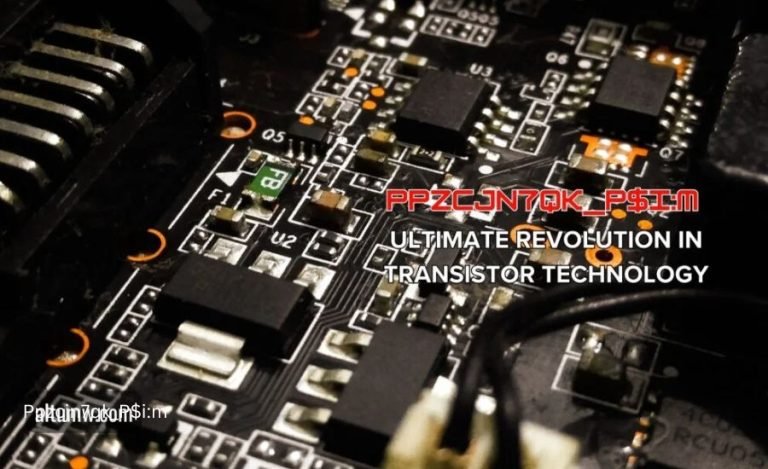What is “ppzcjn7qk_p$i”? Let’s Break It Down
If you’ve stumbled upon “ppzcjn7qk_p$i:m” and wondered what it means, you’re not alone.
It looks like a random jumble of letters, numbers, and symbols, but what if there’s more to it?
You’re probably here because you’re curious about how it works or why it even matters.
Let’s dig into it and make sense of this cryptic string!
The Mystery Behind “ppzcjn7qk_p$i:m”
At first glance, “ppzcjn7qk_p$i:m” doesn’t seem to have any obvious meaning.
But in the right context, these seemingly random characters can represent something important.
Whether it’s part of a password, an encrypted message, or just some data thrown together for a test, we encounter such strings more often than we realize.
The truth is, these types of strings are common in tech, coding, and encryption.
Many systems use them to encode information or verify access.
So, let’s dive deeper into how “ppzcjn7qk_p$i:m” might show up in real life and what it might mean for you.
When Do We See “ppzcjn7qk_p$i:m”?
You might come across “ppzcjn7qk_p$i:m” in places where security is key.
For example, in online systems, complex strings like this are often used for:
- Encrypted passwords
- Token generation
- Session identifiers
It’s a way to keep things secure and make sure no one can easily guess or replicate sensitive information.
Imagine this scenario:
You’re logging into your favorite online service, and instead of typing in a regular password, you enter something like “ppzcjn7qk_p$i:m”.
Behind the scenes, the system checks that string against a securely stored record to see if it’s valid.
This is how “ppzcjn7qk_p$i:m” could be protecting your data.

The Role of Strings Like “ppzcjn7qk_p$i:m” in Data Protection
These random-looking strings serve a very important purpose – protecting your privacy.
By using sequences like “ppzcjn7qk_p$i:m”, systems can:
- Encrypt sensitive data
- Ensure safe data transmission
- Verify user identity
When you send sensitive information online, you need assurance that it’s protected from hackers or prying eyes.
That’s where these strings come in. They act like a secure passcode, ensuring that only those who have access to the right keys can decrypt or make sense of the data.
How Does “ppzcjn7qk_p$i:m” Compare to Other Security Methods?
In today’s digital world, the focus on security has never been more critical.
You may have heard of other methods like two-factor authentication, biometric data, and more complex encryption standards.
So how does something like “ppzcjn7qk_p$i:m” stack up?
While it might look like random gibberish, it’s a part of a larger security framework.
Many services use similar methods to keep information safe.
For instance, session tokens or password hashes often look similar to “ppzcjn7qk_p$i:m”.
But what sets it apart is how unique and difficult it is to guess.
Why Is It Hard to Crack?
The random mix of numbers, letters, and symbols makes it nearly impossible to crack.
Without the correct decryption key or access to the system’s secret files, the string offers no clue to unauthorized users.
It’s like trying to open a safe without knowing the combination.
You wouldn’t want your personal data just sitting there for anyone to access, right?
That’s why systems rely on complex strings like “ppzcjn7qk_p$i:m”.
FAQs About “ppzcjn7qk_p$i:m”
What is the purpose of using a string like “ppzcjn7qk_p$i:m”?
Strings like “ppzcjn7qk_p$i:m” are used in cybersecurity for encryption, authentication, and session management. Their main goal is to keep sensitive data safe.
Is it something I need to worry about?
Typically, you don’t need to worry about it directly. It’s part of how services keep your data secure.
It might show up when you’re logging in or during transactions, but it’s just a security measure working behind the scenes.
Can someone hack “ppzcjn7qk_p$i:m”?
While it’s very difficult to crack, no system is 100% foolproof. However, with proper encryption and security protocols in place, “ppzcjn7qk_p$i:m” is designed to be highly secure.

Real-World Example: How It All Comes Together
Let’s paint a picture.
You’re logging into a secure website to make an online purchase.
When you enter your username and password, the system doesn’t just check for a match.
Instead, it runs a security check using a string like “ppzcjn7qk_p$i:m” to verify your identity, keeping your transaction safe.
That random string is more than just an obscure set of characters.
It’s part of a carefully crafted system designed to protect you from hackers and ensure your personal data stays private.
Conclusion: What Does “ppzcjn7qk_p$i:m” Really Mean?
At the end of the day, “ppzcjn7qk_p$i” is a security tool that plays a big role in keeping your information safe.
While it might look like a random jumble to the untrained eye, it serves a critical function in cybersecurity.
Whether you’re logging into an account or making an online transaction, these strings help verify your identity and protect your sensitive data.
So, the next time you encounter something like “ppzcjn7qk_p$i”, you’ll know it’s not just random gibberish – it’s a vital part of keeping your online world secure.
If you want to learn more about securing your online data, check out some helpful resources here:
- Cybersecurity Basics
- How Encryption Keeps Your Data Safe
- Secure Your Online Accounts
Understanding the power of these systems can help you feel more confident in your online security.














Post Comment